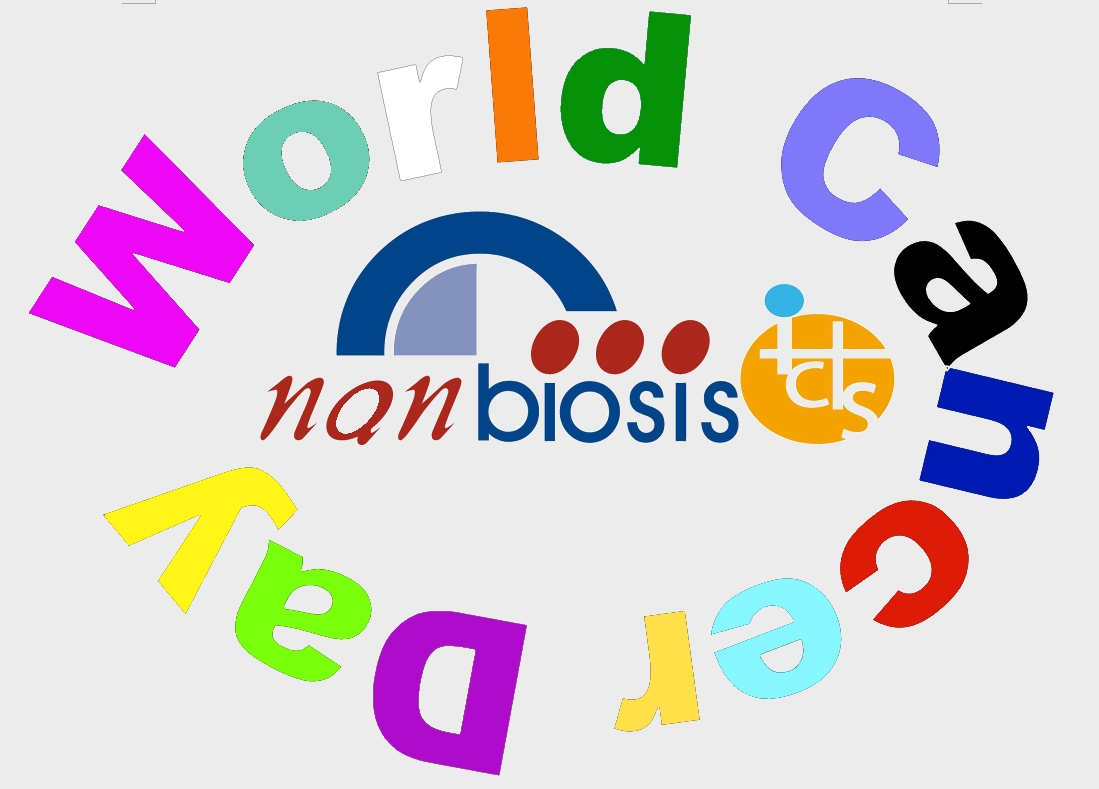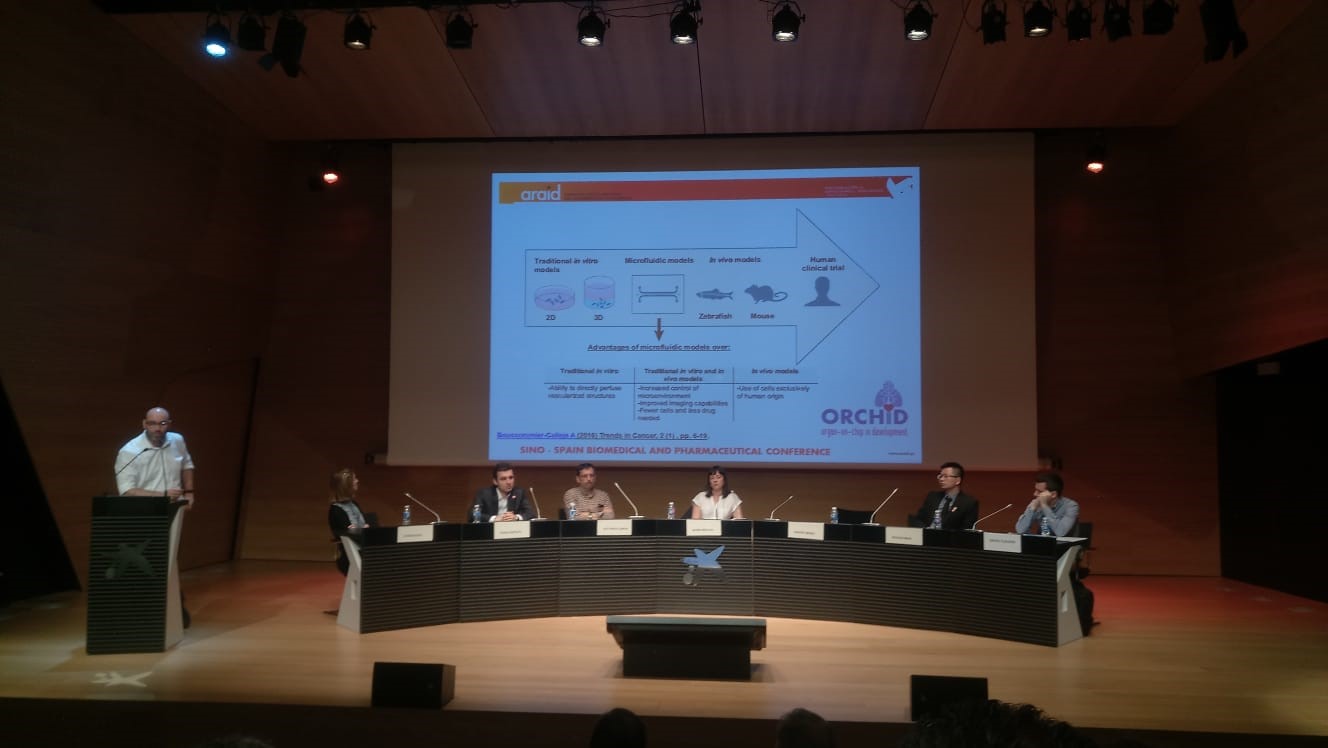NANBIOSIS research to fight cancer
Twenty years ago, the 4 February was declared World Cancer Day with the global challenge of cancer would not be forgotten. Since then, huge progress has been made to understand, prevent, diagnose, and treat cancer.
NANBIOSIS as an ICTS (Singular Scientific and Technical infrastructures) for biomedical research plays a very important role in the fight against cancer. Some examples of the work carried out during the last year, are bellow:
Unit 20 of NANBIOSIS at VHIR, works in several proyects reletaed to cancer as H2020-NoCanTher: magnetic nanoparticles against pancreatic cancer through the use of hyperthermia combined with conventional treatment. H2020-Target-4-Cancer: nanotherapy based on polymeric micelles directed against specific receptors of tumor stem cells in colorectal cancer. H2020-DiamStar: nanodiamonds directed against leukemia for the potentiation of chemotherapy. FET-OPEN EvoNano: in silico and tumor-tumor models for the prediction of PK / PD and tumor efficacy of antitumor nanomedicines against tumor stem cells.
The activities of U1 of Protein Production Platform (PPP) are also strongly committed with several projects devoted to develop new, more selective and more efficient antitumoral drugs, with antimetastatic effects.
oordinated action between units U1 of Protein Production Platform (PPP),
U18 of Nanotoxicology and U29 of Nucleic Acid Synthesis, shows promising results in development of nanopharmaceuticals with a high degree of efficacy for the treatment of metastases in colon cancer
Unit 6 of NANBIOSIS Biomaterial Processing and Nanostructuring Unit is also working on a joined initiative between CIBER-BBN and CIBER-ONC to improve the current ex vivo immune cell expansion systems to help introduce immunotherapies such as the adoptive cell therapies, which have shown complete remissions of terminal cancer patients, to the clinics overcoming the limitation of having enough therapeutic cells with novel Nanobiomaterials. Researchers of Unit 6 and researchers of Laboratory of Translational Research in Child and Adolescent Cancer from the Vall d’Hebron Research Institute (VHIR), are working on a project financed by the Spanish Government and CIBER-BBN, for the development of a new nanomedicine for the treatment of high-risk neuroblastoma, one of the most frequent childhood cancers.
In our unit U26. NMR: Biomedical Applications II, several studies for cancer biomarker discovery are being carried out. NMR studies on biofluids for the design of novel strategies for diagnosis support, easily transferable into the clinical practice, are being developed in biofluids in the context of cancer. Urine is one of the most easily obtainable biofluid and is a non-invasive source of biomarkers. Among these studies, we can mention the good discrimination achieved between urine from bladder cancer patients before surgery (cancer) and urine after surgery (free of cancer) and in the follow up of the disease, to monitor relapses
Some of the results of these researchs have been published in scientific magazines of high impact as for exemple;
Integrative Metabolomic and Transcriptomic Analysis for the Study of Bladder Cancer Alba Loras, Cristian Suárez-Cabrera, M. Carmen Martínez-Bisbal, Guillermo Quintás , Jesús M. Paramio, Ramón Martínez-Máñez,
Salvador Gil and José Luis Ruiz-Cerdá. Cancers 2019, 11, 686; doi:10.3390/cancers11050686
Nanostructured toxins for the selective destruction of drug-resistant human CXCR4+ colorectal cancer stem cells Naroa Serna, Patricia Álamo, Prashanthi Rameshef, Daria Vinokurovaef, LauraSánchez-García, Ugutz Unzueta, Alberto Gallardo, María Virtudes Céspedes, Esther Vázquez, Antonio Villaverde, Ramón Mangues, Jan Paul Medema. . Journal of Controlled Release. Volume 320, 96-104, 2020 https://doi.org/10.1016/j.jconrel.2020.01.019
Controlling self-assembling and tumor cell-targeting of protein-only nanoparticles through modular protein engineering Voltà-Durán, E., Cano-Garrido, O., Serna, N. et al. C. Sci. China Mater.63, 147–156 (2020). https://doi.org/10.1007/s40843-019-9582-9
Engineering Secretory Amyloids for Remote and Highly Selective Destruction of Metastatic Foci, María Virtudes Céspedes Olivia Cano‐Garrido Patricia Álamo Rita Sala Alberto Gallardo Naroa Serna Aïda Falgàs Eric Voltà‐Durán Isolda Casanova Alejandro Sánchez‐Chardi Hèctor López‐Laguna Laura Sánchez‐García Julieta M. Sánchez Ugutz Unzueta Esther Vázquez Ramón Mangues Antonio Villaverde . Advanced Materiasls Número de artículo: 1907348 , Dec. 2019 https://doi.org/10.1002/adma.201907348
Artificial Inclusion Bodies for Clinical Development Julieta M. Sánchez Hèctor López‐Laguna Patricia Álamo Naroa Serna Alejandro Sánchez‐Chardi Verónica Nolan Olivia Cano‐Garrido Isolda Casanova Ugutz Unzueta Esther Vazquez Ramon Mangues Antonio Villaverde, Advanced Science. 2019 https://doi.org/10.1002/advs.201902420
Nanostructured Nucleolin-Binding Peptide for Intracellular Drug Delivery in Triple-Negative Breast Cancer Stem Cells Mireia Pesarrodona, Laura Sánchez-García, Joaquin Seras-Franzoso, Alejandro Sánchez-Chardi, Ricardo Baltá-Foix, Patricia Cámara-Sánchez, Petra Gener, José Juan Jara, Daniel Pulido, Naroa Serna, Simó Schwartz Jr. Miriam Royo, Antonio Villaverde, Ibane Abasolo, Esther Vazquez ACS Applied Materials & Interfaces DOI: 10.1021/acsami.9b15803
Nanostructure Empowers Active Tumor Targeting in Ligand‐Based Molecular Delivery López‐Laguna, H., Sala, R., Sánchez, J. M., Álamo, P., Unzueta, U., Sánchez‐Chardi, A., Serna, N., Sánchez‐García, L., Voltà‐Durán, E., Mangues, R., Villaverde, A., Vázquez, E., . Part. Part. Syst. Charact. 2019, 36, 1900304. https://doi.org/10.1002/ppsc.201900304










